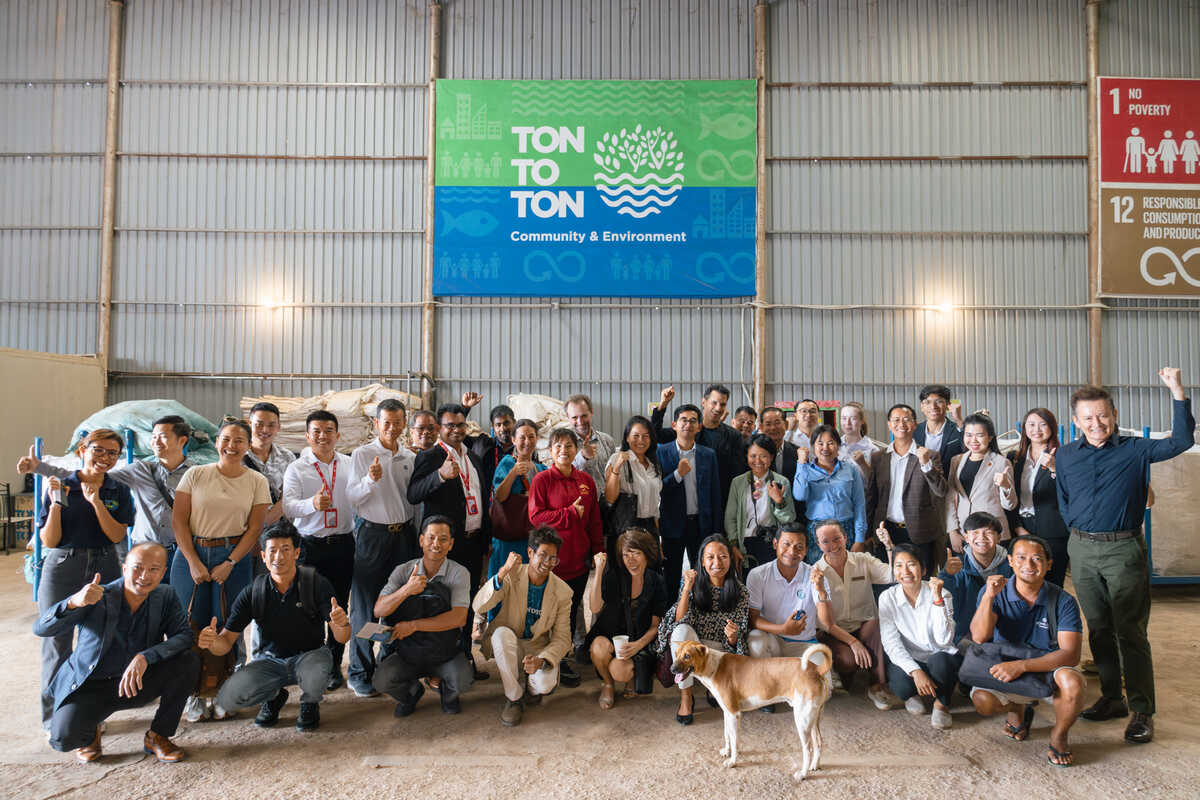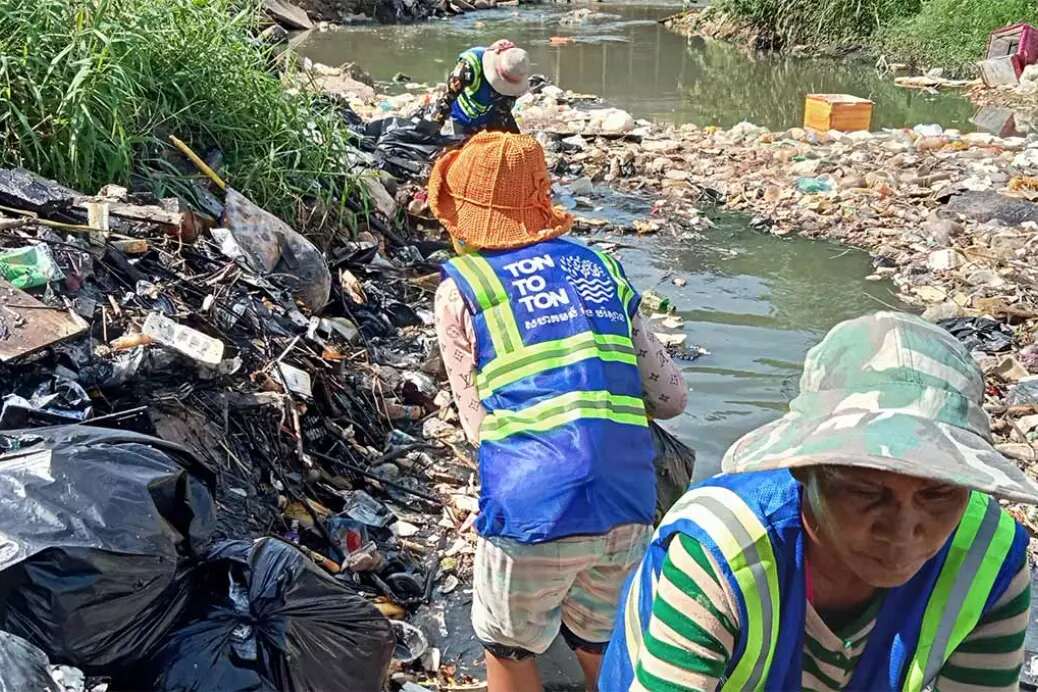TONTOTON Recognised By UNESCO Green Citizens For Plastic Pollution Initiative
Sihanoukville-based social innovation project "TONTOTON", with its unique approach in mobilising coastal communities against plastic pollution, becomes the first Cambodian project to join the UNESCO Green Citizens Project.

TONTOTON, a social enterprise focused on recycling and sustainable waste management, has become the first project in Cambodia to join the UNESCO Green Citizens Project.
According to a press release issued by TONTOTON, the invitation to join the movement highlights the project's unique system of tackling plastic waste through community-led collection and progressive upcycling, which aligns with UNESCO's mission to foster innovative, positive, and concrete impact solutions for community empowerment and environmental preservation.
Southeast Asia is facing rapid industrialisation and a surge in consumer waste, with millions of tons of untreated waste finding their way into the ocean annually. High plastic leakage, particularly in disadvantaged coastal villages, forces communities to live in severe pollution, often without the means to effect change. TONTOTON's mission is to collaborate with these communities, offering a system that enables a clean and safe environment.
"Our recognition by UNESCO Green Citizens is not just an honour but a clarion call for sustainable action," said Barak Ekshtein, Founder of TONTOTON. "It's a validation of our belief that community-centric approaches can significantly address complex environmental issues like plastic pollution."
TONTOTON's Approach To Sustainability
Following the principle of 'Leaving nothing and no one behind', TONTOTON offers an end-to-end solution, from a community collection network to the treatment of all types of plastic. At the company's Material Recovery Facility (MRF) in Sihanoukville, they sort and process collected materials and host awareness tours to educate people on responsible plastic use and disposal.

The initiative strives to turn environmental challenges into opportunities for social and economic development. Thus far, TONTOTON has collected over 3,000 tons of plastic diverted from the environment, integrated over 400 households with a plastic segregation system to prevent plastic leakage, provided additional monthly income of USD $10-12, and involved hundreds of informal waste pickers in its programs.
Adopting a dual approach, the project also focuses on transforming hard-to-recycle plastics into construction materials to build new classrooms and school furniture, and converting other non-recyclables into energy in partnership with cement factories. A key component of TONTOTON's financial sustainability is the Plastic Credits system, which acts as a plastic recovery funding mechanism certified by the Ocean Bound Plastic Certification.
This system allows the private sector to bridge the funding gap for collecting and treating low-value plastic, enabling TONTOTON to maintain its vital operations and expand its impact.
"TONTOTON illustrates the positive impact that community-led initiatives can have on environmental sustainability, inspiring similar actions across the globe," affirmed Armelle Arrou, Head of Section Marketing, Outreach, and Partnerships of the UNESCO Green Citizens initiative.
This article was adapted from a supplied press release.